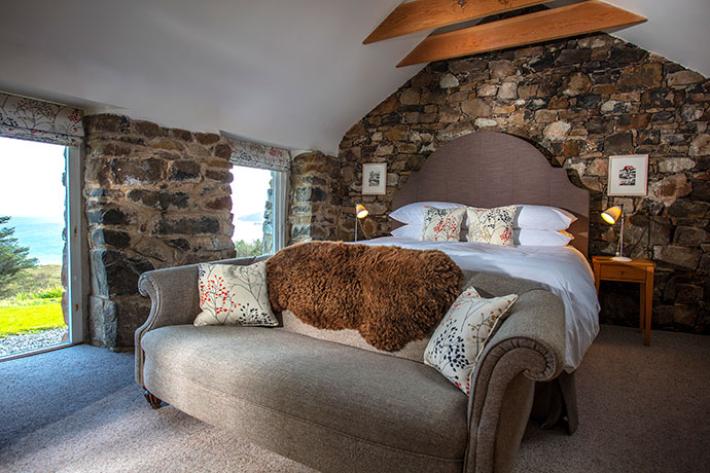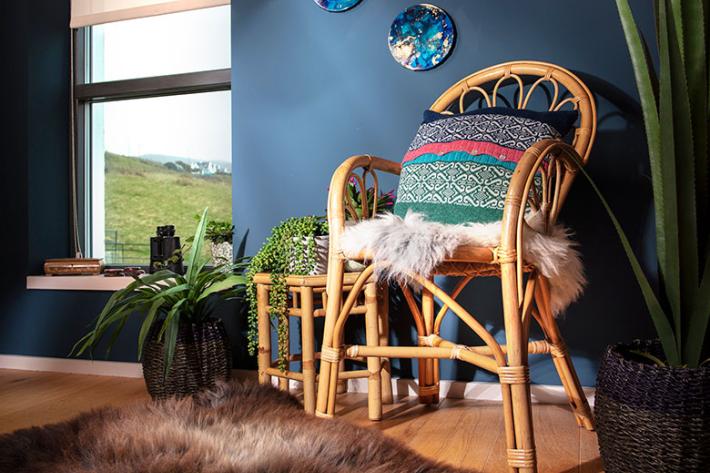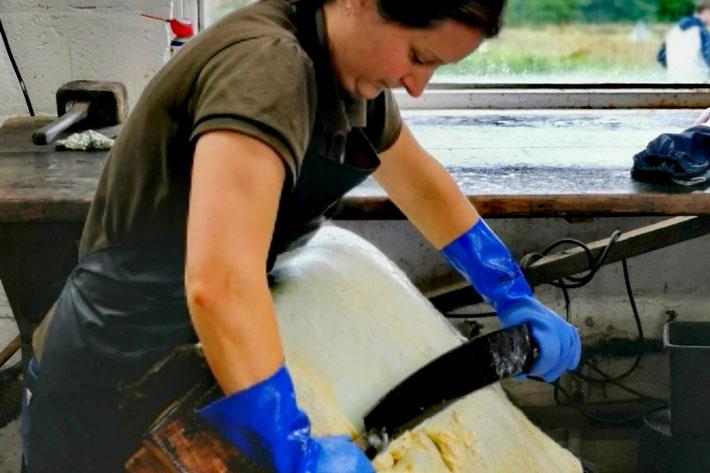Building on sustainable foundations to protect an island landscape for future generations
31 January 2022

Scotland is well-known for its entrepreneurial spirit, and it is vital that businesses across the country leverage this innovative strength to help make the all-important shift to build a carbon neutral economy. Starting your own journey to net-zero is not only an investment in the long-term profitability of your business but also means that you are doing your bit in helping Scotland’s ambitious climate targets.
Getting started can be as simple as implementing waste reduction and recycling schemes, using electric vehicles where possible, and setting up sustainable supply chains. The journey to net-zero will by no means be easy, but the long-term benefits that will ensue are unrivalled. New market opportunities, industry kudos, employee wellbeing, and increased staff retention are only some of the benefits that come from embarking on your journey.
One company that has been committed to climate change since its inception in 1983 is Skyeskyns. Located in Skye’s coastal village of Waternish, the business produces the highest quality sheepskins. Skyeskyns had the foresight to operate sustainably from the beginning by using lamb skins that would otherwise be wasted. Now into its second generation of ownership, the Hartwell family is steering the business through the challenges of the 21st century.
With the support of Highlands and Islands Enterprise, Skyeskyns has built upon its sustainable foundations and implemented various innovative initiatives across the company.
The company sources its skins from the nearest abattoir, minimising transport miles, and preventing the skins being shipped overseas, ensuring wealth stays within the local economy. The company also uses offcuts from sheepskins to turn into other products, such as cushion fillers or building insulation, to ensure that nothing goes to waste.


In 2019, after successful trials, Skyeskyns moved away from using a mineral-based resource for tanning its sheepskins to using mimosa bark. In doing so, it has revived an ancient natural process that creates high-quality leather in the most sustainable way possible. Ultimately, everything produced within the mimosa tanning process is compostable and spread back onto its adjacent croft.
The company also recycles at every opportunity and uses green electricity suppliers at its tannery, visitor centre, and shop. Having invested in an electric delivery van, Skyeskyns installed an electric car charging point outside the tannery, which can also be used by locals and visitors alike.
The next step in the journey for Skyeskyns is to use the land immediately next to the tannery building to create a plantation site. This will help offset the emissions produced by visitors and take the business closer to a carbon-neutral position in the coming years.
As tree bark is used in the tanning, this planting project is seen as a natural evolution and will bring the whole process full circle in full harmony with the surrounding environment.
Raising a family here, I’m conscious that we need to take good care of our environment so the main driver for change was the positive ecological impact, and the cost benefits were a bonus. By constantly reviewing efficiencies and our supply chain, including energy providers, we’ve made big steps forward in terms of sustainability over the last few years.
Jess Hartwell, Skyeskyns
From ethically sourcing its materials, to amplifying its green power output and offsetting its carbon emissions, Skyeskyns’ ethos of looking after the land and its resources continues to define the choices made by the company as they progress on the road to net zero.
Wherever you are on your journey to net-zero, resources and advice are available now. Scotland’s enterprise agencies and public sector partners are working together to encourage businesses to take advantage of the sustainability support available across the business support landscape.